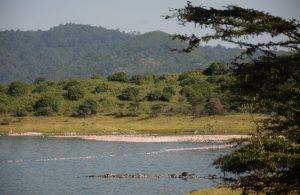Preserving Ngorongoro: Conservation Challenges
Ngorongoro Conservation Area, located in Tanzania, is a UNESCO World Heritage Site known for its stunning landscapes and diverse wildlife. The area is home to a wide variety of species, including lions, elephants, and rhinos. However, like many other natural areas around the world, Ngorongoro faces conservation challenges that threaten its biodiversity.
Conservation Concerns in Ngorongoro
One of the main conservation concerns in Ngorongoro is human-wildlife conflict. As the human population around the conservation area grows, conflicts between local communities and wildlife have become more frequent. This can lead to retaliatory killings of animals, which can have a devastating impact on the ecosystem.
Another major challenge is poaching. Despite efforts to combat poaching, illegal hunting continues to be a threat to the wildlife in Ngorongoro. Poachers target animals such as elephants and rhinos for their tusks and horns, which are highly sought after on the black market.
Additionally, habitat loss is a growing concern in Ngorongoro. As human activities encroach on the natural habitats of wildlife, the animals are forced to compete for resources and space, leading to a decline in their populations.
Strategies for Preserving Biodiversity
To address these conservation challenges, a number of strategies are being implemented in Ngorongoro. One of the key approaches is community-based conservation. By involving local communities in conservation efforts, it is possible to reduce human-wildlife conflicts and promote sustainable land use practices.
Another important strategy is anti-poaching initiatives. Law enforcement agencies in Ngorongoro are working hard to crack down on poaching activities and protect the wildlife in the area. This includes increasing patrols, setting up surveillance systems, and working with local communities to gather intelligence on poaching activities.
Habitat restoration and management are also crucial for preserving biodiversity in Ngorongoro. By restoring degraded habitats and implementing sustainable land management practices, it is possible to create healthy ecosystems that support a wide range of wildlife species.
In addition, ecotourism plays a key role in conservation efforts in Ngorongoro. Responsible tourism can generate income for local communities, incentivize conservation practices, and raise awareness about the importance of protecting the area’s biodiversity.
Sunset Africa Safari offers tours to Ngorongoro Conservation Area, providing visitors with the opportunity to experience the incredible wildlife and landscapes while supporting conservation efforts. For booking requests, clients can contact info@sunsetafricasafari.com.
In conclusion, while Ngorongoro faces conservation challenges, there are strategies in place to preserve its biodiversity. By addressing human-wildlife conflicts, combating poaching, restoring habitats, and promoting responsible tourism, it is possible to ensure that Ngorongoro remains a thriving ecosystem for generations to come.


